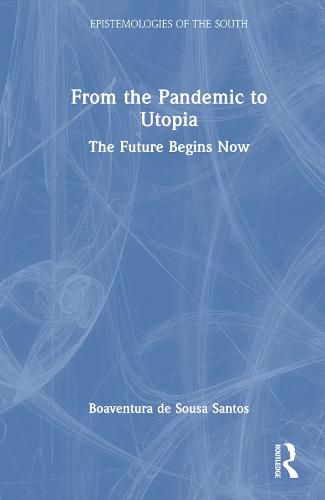Readings Newsletter
Become a Readings Member to make your shopping experience even easier.
Sign in or sign up for free!
You’re not far away from qualifying for FREE standard shipping within Australia
You’ve qualified for FREE standard shipping within Australia
The cart is loading…






The coronavirus pandemic forces us to rethink our contemporaneity. It has brought to the surface dimensions of human fragility that partially contradict the euphoria and human hubris of the fourth industrial revolution (artificial intelligence). It has also aggravated the social inequality and racial discrimination that characterize our societies. The book argues that the virus, rather than an enemy, must be viewed as a pedagogue. It is trying to teach us that the deep causes of the pandemic lie in our dominant mode of production and consumption. The systemic overload of natural resources creates a metabolic rift between society and nature that destabilizes the habitat of wild animals and the vital cycles of natural regeneration whereby pandemics become an increasingly recurrent phenomenon. In trying to take seriously this lesson the book proposes a paradigmatic shift from the current civilizatory model to a new one guided by a more equitable relationship between nature and society and the priority of life, both human and non-human.
$9.00 standard shipping within Australia
FREE standard shipping within Australia for orders over $100.00
Express & International shipping calculated at checkout
The coronavirus pandemic forces us to rethink our contemporaneity. It has brought to the surface dimensions of human fragility that partially contradict the euphoria and human hubris of the fourth industrial revolution (artificial intelligence). It has also aggravated the social inequality and racial discrimination that characterize our societies. The book argues that the virus, rather than an enemy, must be viewed as a pedagogue. It is trying to teach us that the deep causes of the pandemic lie in our dominant mode of production and consumption. The systemic overload of natural resources creates a metabolic rift between society and nature that destabilizes the habitat of wild animals and the vital cycles of natural regeneration whereby pandemics become an increasingly recurrent phenomenon. In trying to take seriously this lesson the book proposes a paradigmatic shift from the current civilizatory model to a new one guided by a more equitable relationship between nature and society and the priority of life, both human and non-human.